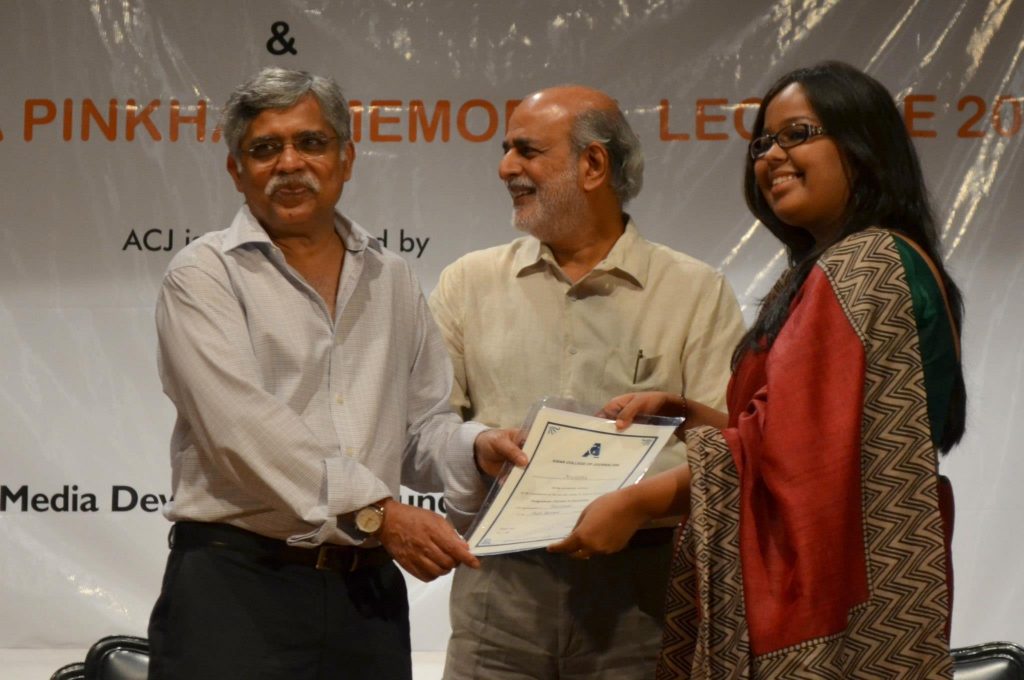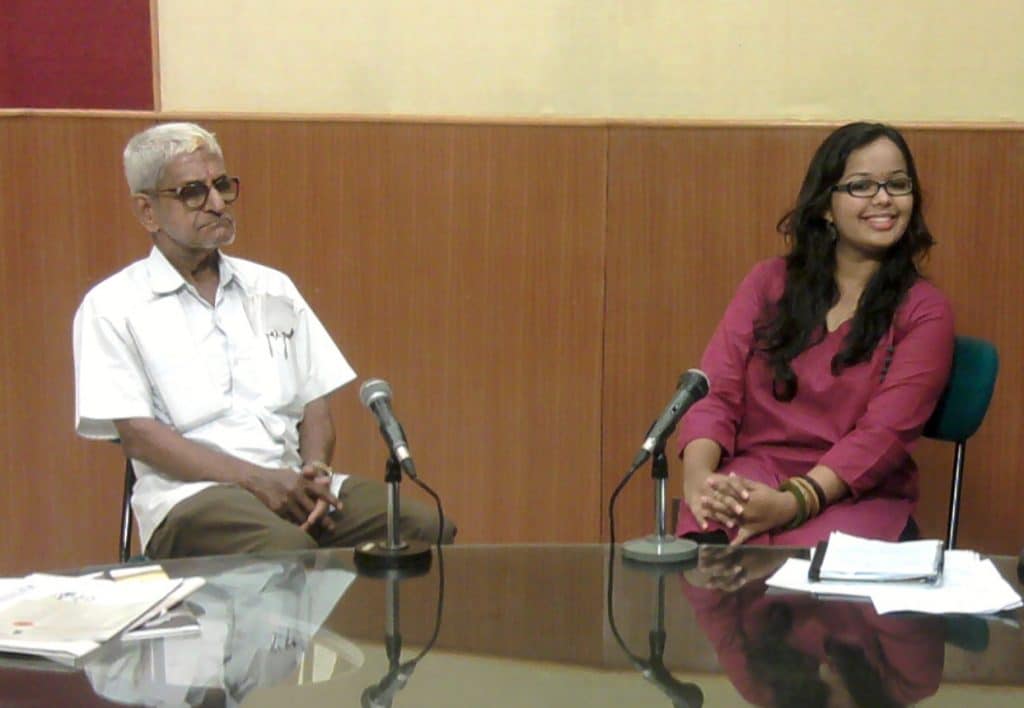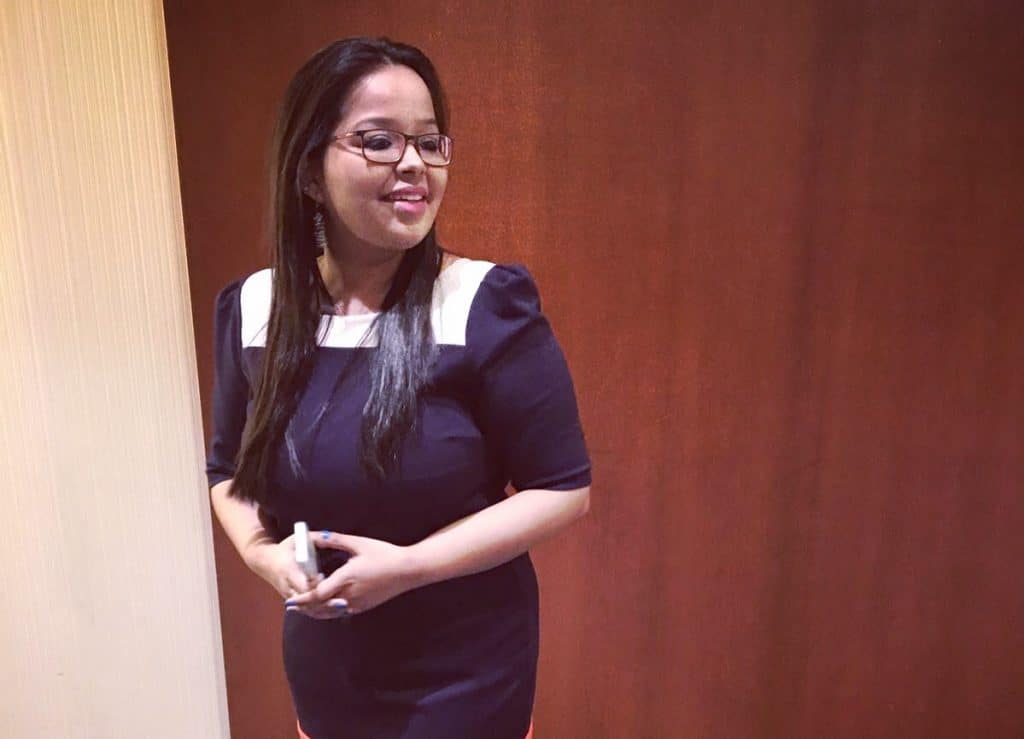
By Guest Author Nishtha Yadav
We’re pleased to have Nishtha Yadav of India, ProFellow’s inaugural Social Entrepreneurship Fellow, share a series on her experience applying to and becoming an international student in the U.S. In 2018, Nishtha earned her Master of Arts in Communication Management with a specialization in Political Communication at Emerson College in Boston, Massachusetts.
Studying abroad is not an easy decision. There are various factors one has to take into consideration including choosing the right graduate program and the study destination. For some, studying abroad is only possible if they secure internal funding through the educational institution they want to study at or are recipients of external awards such as the Fulbright Foreign Student Program.
In my case, ever since I was in high school, I had my heart set on studying either in the United Kingdom or the United States. At that point, I had no idea what I would like to study or which universities I would like to apply to. The idea of moving abroad and starting a new life was enticing, and I could not wait to move out of India after high school. To prepare for the move, I even participated in an international cultural exchange program when I was 16, where I along with five students and two teachers from my school, traveled to Droitwich Spa High School in Worcestershire, U.K.

However, I decided to stay back in my country after high school and actually moved to the U.S. for my graduate studies in my mid-20s. In hindsight, I’m glad I took the time to figure out my career interests and subjects that I’m passionate about.
In this article, I will discuss why I decided to pursue my graduate studies in the U.S. and how I addressed the challenges of living abroad.
Overcoming fears of studying in a new country
When I started exploring study abroad options after high school, I realized that I had varied interests and that a four-year Bachelor’s degree in the U.K. or the U.S. would be expensive. I was not ready to take on educational loans so early in my life, and I was not even aware that there were some external funding awards I could have applied to. The financial liability and scattered career plans made me question if this was the right time to pursue education abroad.
I also began to notice that I was developing cold feet about my study abroad plans. It was probably because I lived with my parents right until high school and felt ill-equipped to handle my move abroad. Even though the cultural exchange program was beneficial in getting me acquainted with life abroad, I knew I needed to become more self-sufficient and gain more experience living away from home if I wanted to move abroad for a longer period of time. I felt I needed to explore my own country first and maybe relocating to another city within India may be a better move.
I moved from New Delhi to Mumbai for my Bachelor’s degree and then moved to Chennai for my Post-Graduate Diploma. After that, I moved back to New Delhi to pursue my first job as a news reporter for an English newspaper. The relocation within the country gave me the confidence and skills to finally look for graduate study options abroad. I believe I looked for graduate programs at the right time because I had figured out my career interests, saved up some money, gained valuable work experience, and had built up a network in India which included professionals with degrees from abroad.

Let me tell you, all the fears I have listed here – and the ones you have – are legitimate. If you are worried about moving to a different continent altogether, then I would recommend you move to a city within your own country for a fellowship or a short-term program in your interest area, especially if you have never lived away from home. It will give you an opportunity to be independent and experience life away from your comfort zone. This can be a great way to prepare yourself for a life in a different country or continent!
Moving abroad is an expensive endeavour; therefore, it is important that you are financially comfortable before you make the move. There is nothing wrong with delaying your study abroad experience if you don’t have the funds or have not received any sort of funding. You will not be able to enjoy your abroad experience if you are constantly worrying about money.
Here are a few things to consider when making this decision.
#1: A U.S. education could be valuable for your career
Unlike many others who move to the U.S. for their education, I had no plans to stay in the U.S. after my graduation. I wanted to get my Master’s degree, work for a year, and then move back to India.
I planned my study abroad education for nearly a year, and my research indicated that a U.S. education would fetch me a better job when I returned to my country. I analyzed job profiles I would be interested in after my graduate studies ended and looked up professionals on LinkedIn who had similar job profiles. Most of them had an education from the U.S. I also spoke to students who studied abroad and moved back to India after their graduations. I noticed that the ones with a U.S. education got better job opportunities and salaries in India. However, this research could vary from country to country, and will also depend on the state of the global economy.
I knew that U.S. education would be extremely valuable if I decided to pursue a PhD in a few years. Even though I studied at well-known educational institutions in India, to pursue a PhD program abroad, I still need a competitive edge over other applicants. So, I applied to internationally recognized colleges and universities to ensure that I have some added advantage when I apply to doctoral programs.
Further, if you are from a non-English speaking country and are looking to apply for a PhD program after your Master’s, then a graduate degree from the U.S. may be especially valuable to you. Several universities waive English proficiency tests (IELTS/TOEFL) if you have a U.S. degree. However, this may not be applicable at every university. You should check with the graduate admissions department if an English proficiency exam is required or not before applying.

#2: U.S. colleges and universities have a diverse student body
The U.S. is one of the most popular destinations for international students. Students from across the world come here for education, fellowships, and cultural exchange programs. My purpose of getting an education abroad was to understand different cultures, bond with people from different countries, and create a global network of like-minded professionals. For instance, during my time as an international graduate student in Boston, I made friends with students from countries such as China, Taiwan, Canada, Brazil, and Venezuela to name a few. Even my American friends were from various cities in the U.S., which gave me perspective about how different each state in the U.S. is.
This international exposure will help you inculcate skills such as global communication, an understanding of politics and economy of the U.S. and other countries, working with people from different backgrounds, and most importantly, respect for each other’s values and culture. These are some of the soft skills many organizations look for while hiring talent. Needless to say, the multiculturalism you experience in the U.S. will come in handy when you apply for jobs and further education.
International students at a U.S. college or university are an important part of the student population. Usually, the school will have an International Affairs Office, Multicultural Affairs Office, or a similar department that offers support to new and current international students. Yes, you will find yourself away from home, but you will find students from other countries who are in a similar situation as yourself.

#3: It’s easier to find niche graduate programs in the U.S.
When I started looking for graduate programs, I was looking for a program that catered to my multiple interests such as communications, marketing, political communication, strategic communication, and research, to name a few. However, I was unsuccessful in finding a program in my home country. However, in the U.S., I was able to find several graduate programs that offered exactly what I dreamt of studying!
In India, I would have either pursued an M.A. in Political Science or Communications or an MBA, but it would have only catered to one or two aspects of my interests. Whereas in the Communication Management graduate program at Emerson College, I studied courses such as research methodology, global communication, public affairs, political communication, speech writing, and campaign management, among others.
The Master’s degree in the U.S. is uniquely designed. Many universities in the U.S. give you the opportunity to take classes in other departments. For instance, a student studying communications can explore classes with the Visual and Media Arts department, the Marketing department, or the Journalism department. Your learning is not restricted to the content of your program; you have the freedom to explore your interest areas that lie outside the focus of your own graduate program.
Further, universities in the U.S. also offer choices when it comes to the design of a graduate program. There are graduate programs that are research-based or theoretical in nature, while some offer a combination of practical knowledge and theory. Students can choose graduate programs that align the best with their career path. This flexibility, along with thousands of graduate program options across the country, is one of the reasons why the U.S. continues to be a leading destination for international students.

© Victoria Johnson 2020, all rights reserved